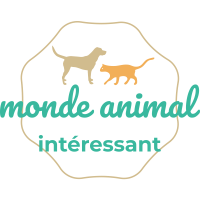Wildfires have affected both humans and animals
The ongoing wildfires in Canada have not only affected humans but also our furry friends, dogs and cats. Like their human counterparts, they are experiencing discomfort and respiratory issues due to the pollution and unhealthy air caused by the fires. Christine Klippen, an emergency veterinarian at Friendship Hospital For Animals in D.C., has observed that animals are exhibiting symptoms similar to humans, such as increased coughing, reverse sneezing, and experiencing itchy eyes and feet. These symptoms are a direct result of the smoggy conditions prevailing in the area.
Klippen explained that pets, like humans, may find it more challenging to breathe in unhealthy air, particularly if they have preexisting health conditions. Underlying diseases such as heart disease, asthma, chronic allergies, or lower airway disease can worsen due to the smog.
While humans can stay indoors with air conditioning, dogs usually go outside multiple times a day for bathroom breaks or short walks. If you notice your furry friend struggling to breathe or experiencing respiratory symptoms, it is advisable to consult a veterinarian or animal hospital.

Klippen recommended keeping outdoor trips brief for pets and avoiding excessive exercise in polluted air. Although animals enjoy outdoor activities, it is safer for both pets and humans to remain indoors during periods of unhealthy air. Klippen emphasized the importance of spending quality time indoors with pets, engaging in activities such as puzzle feeders or snuffle mats, especially for active animals.
The detrimental effects of poor air quality are not limited to domesticated animals; even big cats are being impacted. To mitigate the health risks associated with the polluted air, the National Zoo in D.C. has taken the precautionary measure of temporarily relocating most outdoor-dwelling animals indoors. As a result, the Zoo has closed its doors to the public, ensuring the safety and well-being of animals such as bears, big cats, pandas, and apes who are currently housed indoors. Elephants have the choice of staying inside or venturing outside, while birds continue to reside outdoors. This proactive approach aims to protect the animals from the adverse consequences of the ongoing pollution and provide them with a healthier environment during this challenging time.
According to Dr. Don Neiffer, the Chief Veterinarian of the Smithsonian’s National Zoo and Conservation Biology Institute, avian species require special attention during events like these due to their distinct respiratory characteristics. However, the risks associated with the poor air quality are not markedly different for mammals, reptiles, and amphibians. It is important to acknowledge that all animals in the zoo, regardless of their species, face similar risks and potential health issues as a result of the ongoing pollution. By recognizing this fact, the zoo can implement appropriate measures to safeguard the well-being of all its inhabitants during these challenging circumstances.
Director Suzanne Shoemaker of the Owl Moon Raptor Center in Boyds, Maryland, has voiced her apprehensions regarding the well-being of both wild birds and those entrusted to their care for rehabilitation. The center cannot bring the birds indoors due to the lack of air-conditioned facilities. Therefore, the birds remain outside, potentially exposed to the smoky conditions.

Although no birds affected by the smoke have been treated at the center thus far, prolonged smog could lead to increased admissions. Shoemaker highlighted the cumulative effects of poor air quality, which may result in more birds requiring assistance. The situation is particularly critical as many birds are currently nurturing hatchlings in their nests, and the smoke can be lethal to the young ones.
One of the challenges faced is the lack of extensive research on the long-term effects of poor air quality on birds and wildlife. Only time will reveal how well or poorly the animals cope with this unprecedented event.
Shoemaker advised people to be vigilant for signs of birds struggling with the smoke, such as birds remaining on the ground in distress. Difficulty breathing could cause them to seek refuge on the ground.
In conclusion, the ongoing pollution and unhealthy air caused by wildfires are impacting the well-being of dogs, cats, and wildlife. It is essential to take necessary precautions and seek professional assistance for pets experiencing respiratory issues. Moreover, keeping animals indoors and providing stimulating activities can help mitigate the effects of the poor air quality.





